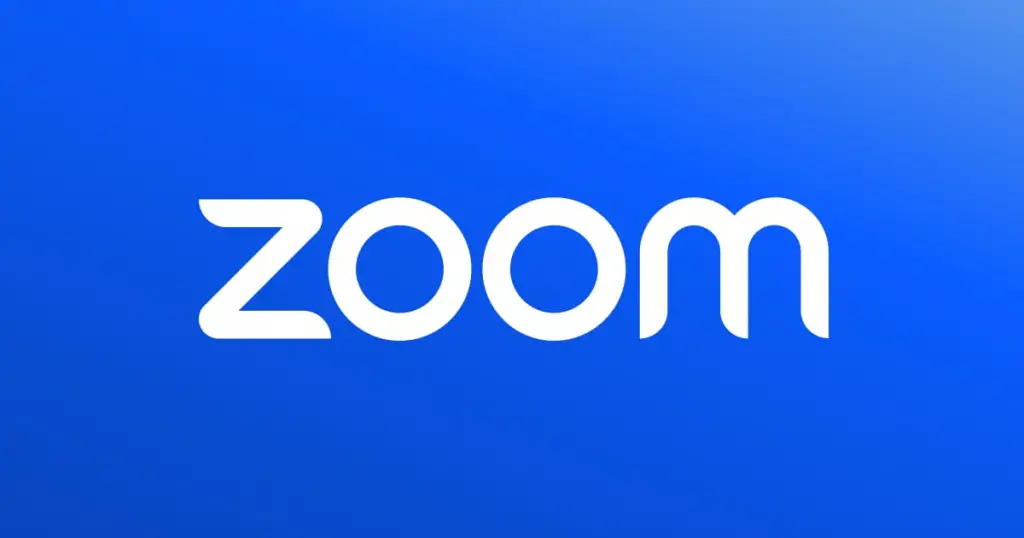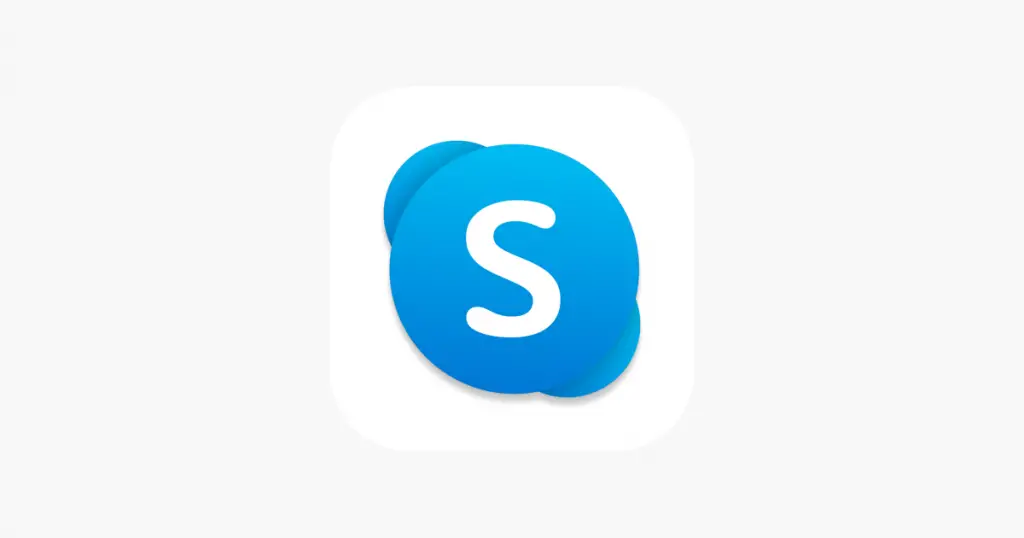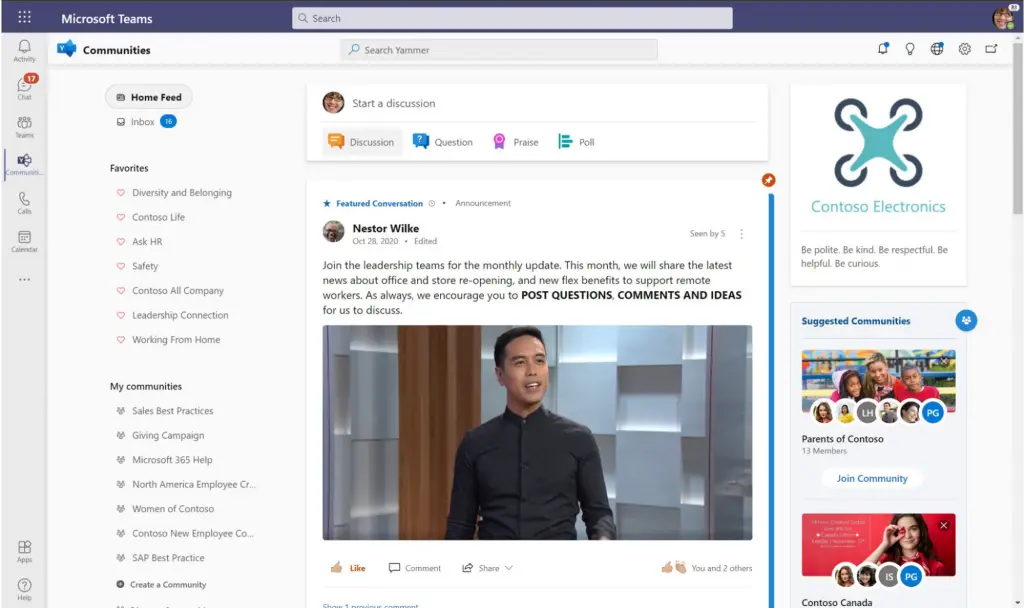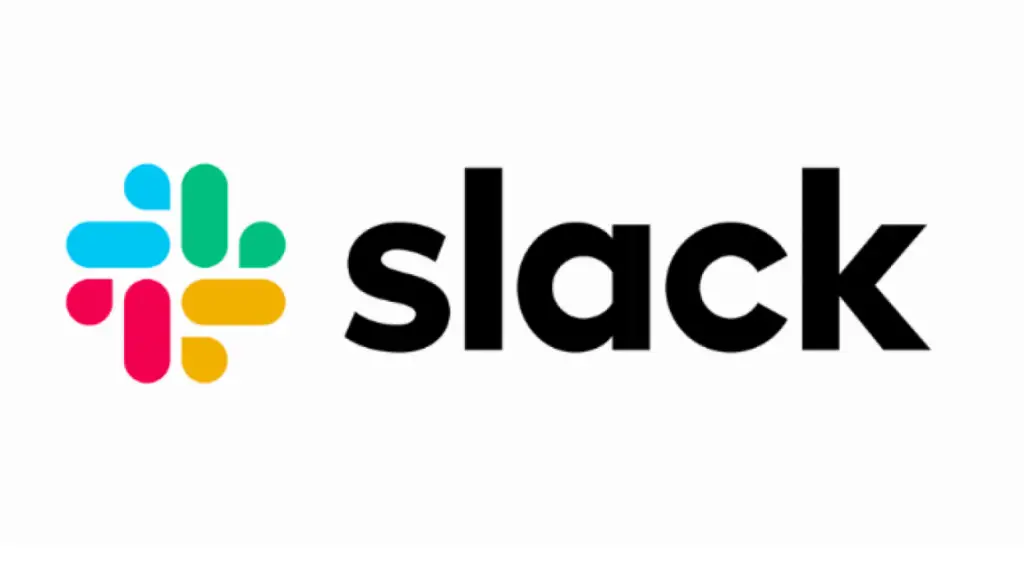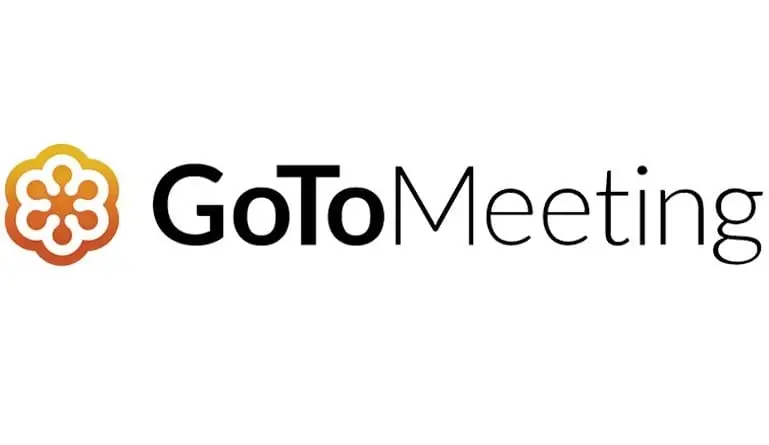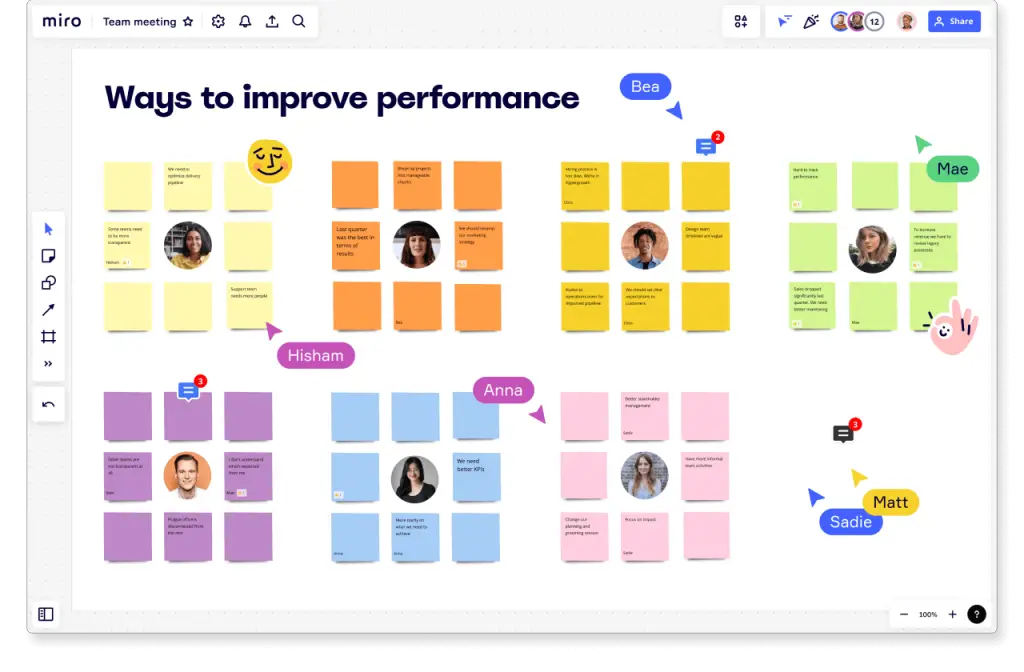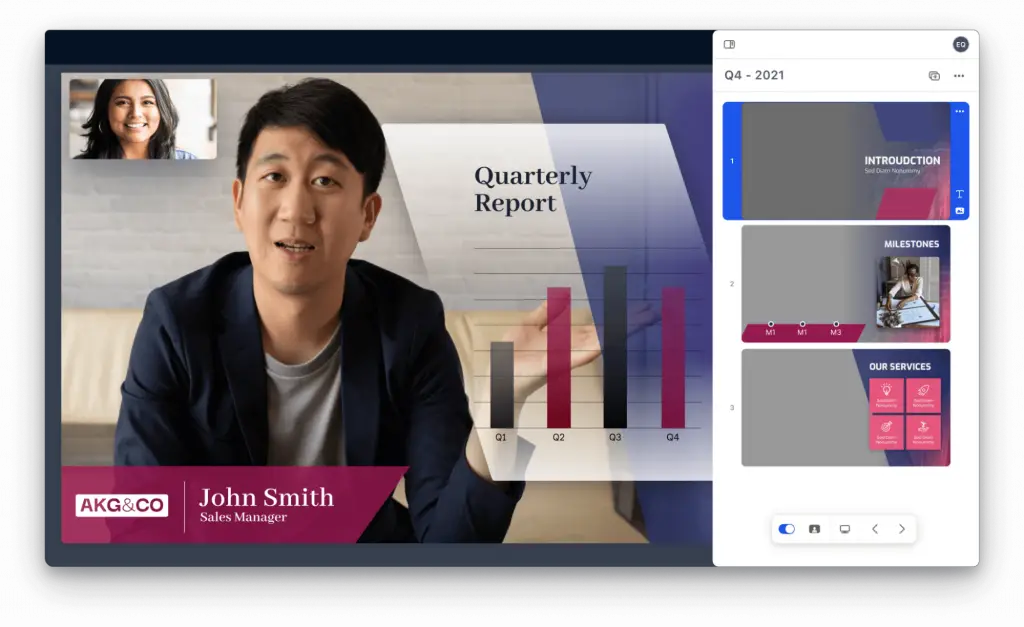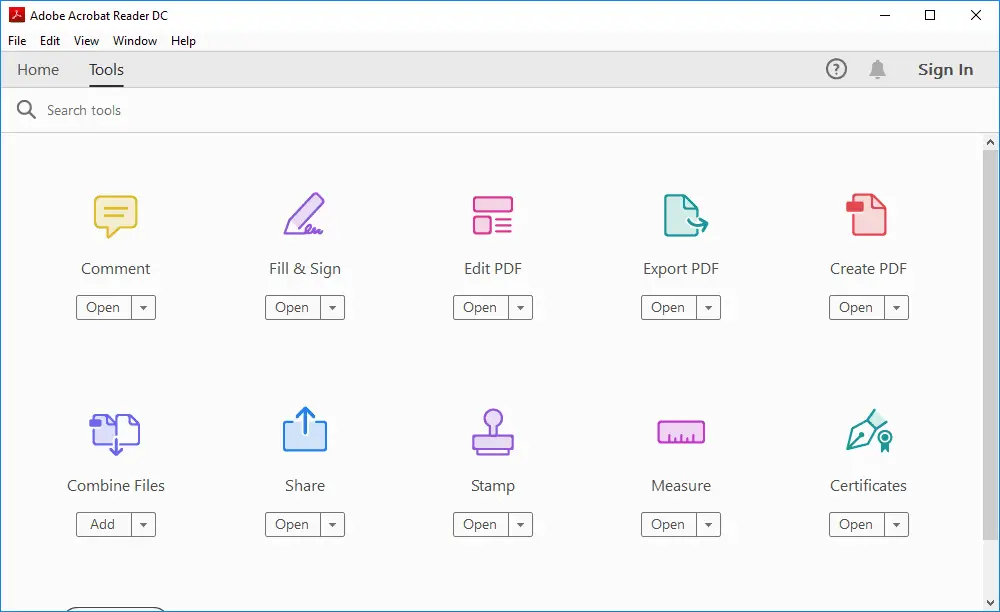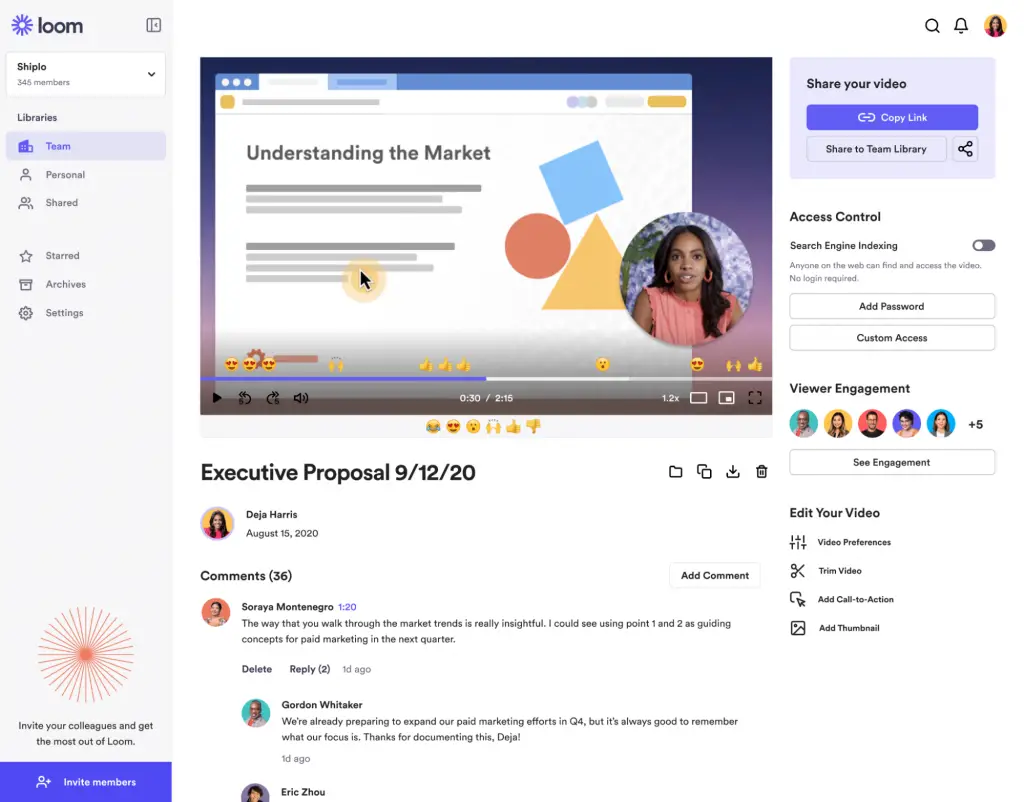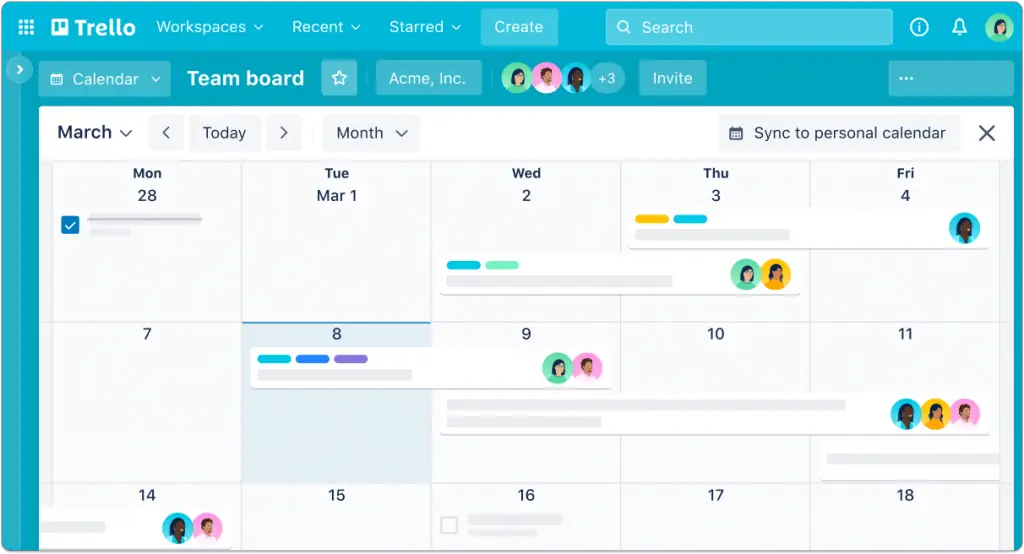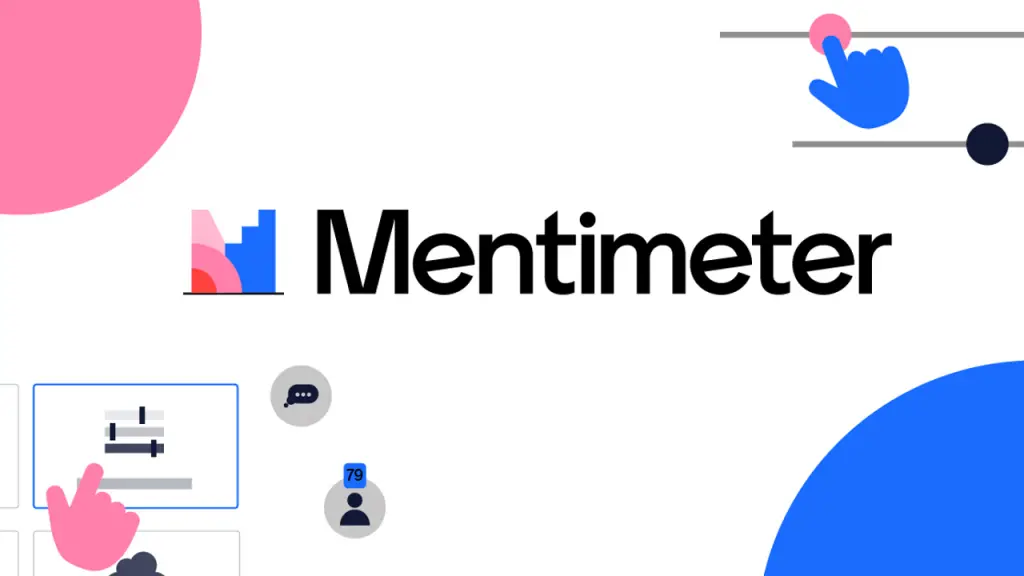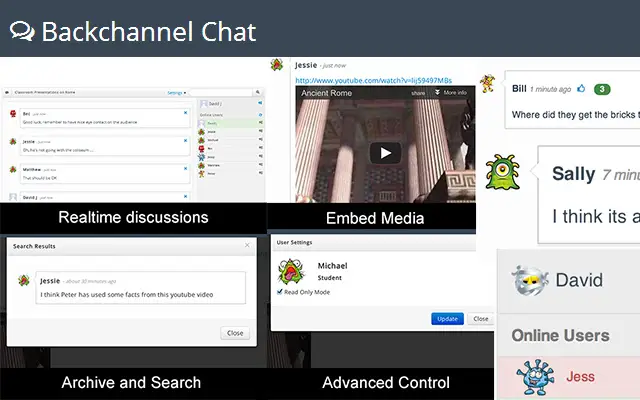Do you have challenges in your online thesis defense preparations? Discover the Best Tools for Online Thesis and Dissertation Defenses to streamline the process.
With the rise of remote and online learning, academia faces the challenge of ensuring quality thesis and dissertation defenses are carried out seamlessly. The solution? Leveraging modern software tools designed to cater to the unique demands of such a critical academic exercise.
Table of Contents
Overview
Online defenses are a blend of presentations, discussions, and feedback sessions. To ensure they run smoothly, a set of tools that optimize interaction, clarity, and professionalism is vital. The tools discussed in this article are selected based on their proficiency in assisting scholars in presenting their years of hard work.
Best Tools for Online Thesis and Dissertation Defenses
#1. Zoom: Best for large panel video conferencing and recording
Summary
- Major platform for video conferencing.
- Features advanced recording options.
- Supports large groups.
Zoom has quickly become a staple in academic circles due to its scalability. It effortlessly supports video conferences with multiple panelists, making it ideal for thesis and dissertation defenses where large dissertation committee members are involved.
Benefits
- Ease of Use: Simplifies the joining process for participants.
- Recording Features: Enables capturing the defense for future reference.
- Stable Connectivity: Offers a reliable connection, ensuring a smooth defense process.
Zoom, with its intuitive interface and robust features, ensures that every participant, be it a panelist or a student, experiences an uninterrupted and comprehensive defense session.
How much does it cost?
- $0-$199/year
Source: https://zoom.us
#2. Skype: Best for small group video communications
Summary
- Long-standing video communication tool.
- Well-suited for smaller groups.
- Includes file-sharing options.
Skype, a pioneer in video communication, remains relevant in academia. It’s particularly effective for smaller defense panels, ensuring intimate and focused discussions between students and their advisors.
Benefits
- Direct Communication: Offers clear audio and video quality.
- File Sharing: Facilitates sharing of key documents during defenses.
- User-Friendly Interface: Easy for participants of all tech levels.
Skype remains a trustworthy choice, ensuring clarity in communication and facilitating a more personable defense environment for smaller groups.
How much does it cost?
- $0-$8.39/month
Source: https://www.skype.com
#3. Microsoft Teams: Best for integrated student’s presentation with chat
Summary
- Comprehensive platform integrating chat and video.
- Seamlessly combines presentations with discussions.
- Efficient document collaboration features.
Microsoft Teams, beyond just a communication tool, has woven itself into the fabric of academia. It brings the classroom’s vibrancy online, ensuring thesis defenses are as interactive as they would be face-to-face.
Benefits
- Integrated Chat: Merges real-time feedback with ongoing presentations.
- Document Collaboration: Enables multi-user edits and suggestions.
- Streamlined Interface: Melds chats, videos, and files in one window.
Microsoft Teams shines in bridging the gap between a physical defense and a digital one, fostering an environment of collaboration and open dialogue.
How much does it cost?
- $4-$12.50/month
Source: https://www.microsoft.com
#4. Google Meet: Best for quick video calls with screen sharing
Summary
- Quick setup for video calls.
- Efficient screen sharing capabilities.
- Compatible across devices.
Google Meet, born from the tech giant’s foray into video communication, serves academia with simplicity. With a straightforward setup, it ensures that defenses go on without the fuss of software complications.
Benefits
- Quick Access: No bulky downloads or installations.
- Clear Screen Sharing: Makes presentations visually clear.
- Cross-Platform: Accessible from desktops to smartphones.
For those seeking an uncomplicated, direct tool that doesn’t skimp on quality, Google Meet stands out. It ensures that the focus remains on the defense, not the software.
How much does it cost?
- From $6/month
Source: https://meet.google.com
#5. Slack: Best for collaborative communication with video option
Summary
- A hub for team-based communication.
- Integrates text chats, channels, and video calls.
- Facilitates organized, topic-specific discussions.
In the academic labyrinth of communication, Slack emerges as a beacon, not just simplifying but elevating the discourse. Imagine having a virtual academic lounge where everything, from casual brainstorming to intense defense discussions, finds its rightful place. Slack’s channels and integrated video options serve as the modern agora for scholarly exchanges.
Benefits
- Topic-Centric Channels: For streamlined and organized conversations.
- Integrated Video Calls: Seamless switch from text to face-to-face discussions.
- Collaboration Boost: Enhances teamwork through shared resources and instant feedback.
Slack seamlessly melds the casual with the formal, creating a mosaic of interactions where scholars can bounce ideas, share insights, and prepare for the pivotal moments of their academic journey.
How much does it cost?
- From $8.75/month
Source: https://slack.com
#6. Cisco Webex: Best for formal, secure virtual defenses
Summary
- Robust platform for professional virtual meetings.
- High-level security protocols in place.
- Features for presentations, collaborations, and interactive defenses.
Cisco Webex isn’t just another video conferencing tool; it’s akin to the distinguished breakout room where gravity meets grace. Tailored for formal engagements, it mirrors the sanctity of traditional defenses, but with a digital touch. The security it offers ensures that every discussion remains confidential, making it a top pick for scholars and universities alike.
Benefits
- Rock-Solid Security: Ensures confidential discussions remain private.
- Professional Interface: Mimics the feel of formal defense settings.
- Interactive Features: Enhances the defense experience with tools for collaboration and feedback.
Cisco Webex offers more than a virtual meeting space; it’s an arena where academic rigor meets cutting-edge technology, ensuring every defense is both secure and sophisticated.
How much does it cost?
- $25/month
Source: https://www.webex.com
#7. GoToMeeting: Best for large online gatherings
Summary
- Optimized for large-scale video conferences.
- HD quality video and clear audio.
- Calendar integrations for scheduled defenses.
In the bustling world of academia, GoToMeeting has risen as the go-to for gatherings that stretch beyond the usual size. Its finesse in managing large online audiences makes thesis and dissertation defenses feel like grand academic events, echoing the lecture halls of yore.
Benefits
- Smooth Scaling: Comfortably accommodates growing participant numbers.
- Crystal Clear Quality: Ensures every slide and word is understood.
- Effortless Scheduling: Integrates with calendars for timely reminders.
For those moments when the virtual room seems bursting with attendees — from professors to peers — GoToMeeting ensures the defense remains a grand, yet seamless affair.
How much does it cost?
- $5-$20/month
Source: https://www.goto.com
#8. Miro: Best for real-time whiteboard brainstorming
Summary
- Virtual whiteboard for visual thinkers.
- Collaborative space for brainstorming and feedback.
- Tools for creating, drawing, and annotating.
Miro steps in when words fall short, offering a canvas for academic minds to visually represent and discuss their concepts. Like a whiteboard in a cozy university room, it invites interactive feedback, questions, and those brilliant ‘aha!’ moments.
Benefits
- Interactive Canvas: Enables dynamic idea mapping.
- Real-Time Collaboration: Multiple users can draw and comment.
- Diverse Toolset: Offers shapes, texts, drawings, and more.
In the often abstract realm of research, Miro provides a tangible space to sketch out ideas, engage with feedback, and see the bigger picture, quite literally.
How much does it cost?
- $0-$10/month
Source: https://miro.com
#9. Prezi Video: Best for dynamic visual presentations
Summary
- Transforms regular presentations into visual stories.
- Non-linear format for engaging content flow.
- Allows presenter to be on-screen with their content.
Leaving behind the monotony of slide-after-slide presentations, Prezi Video spices up academic discussions. By blending the presenter with their content, it crafts a storytelling experience, ensuring the defense is not just heard, but also felt.
Benefits
- Dynamic Design: Makes content transitions lively.
- Engaging Interface: Keeps the audience hooked with its flow.
- Personal Touch: Blends the charisma of the presenter with their research.
In a world where engagement is gold, Prezi Video ensures the audience is not just seated, but enthralled, making every defense a memorable narrative.
How much does it cost?
- $7-$19/month
Source: https://prezi.com
#10. Acrobat Reader: Best for document highlighting and annotations
Summary
- Standard for viewing and annotating PDFs.
- Features to highlight, comment, and underline.
- Secure and widely compatible.
Acrobat Reader has stood the test of time, consistently proving its worth in academia. It’s not just about viewing documents; it’s about diving deep, annotating, and discussing the intricacies of a research paper, one highlight at a time.
Benefits
- Deep Dive: Enables in-depth document reviews.
- Collaborative Annotations: Collect feedback from multiple sources.
- Universal Compatibility: Recognized and accessible across devices.
When it comes to dissecting a document, understanding its nuances, and collaborating on its content, Acrobat Reader remains an unmatched ally in the academic world.
How much does it cost?
- $19.99-$29.99/month
Source: https://get.adobe.com
#11. SlideShare: Best for hosting defense slides online
Summary
- Premier platform for hosting presentations.
- Accessible to a broad online audience.
- Offers options for embedding and sharing.
In our increasingly connected academic landscape, SlideShare emerges as a beacon for sharing knowledge far and wide. Think of it as a global lecture hall where defense slides find an audience beyond the confines of a university. For scholars seeking to make their mark and share their insights with the world, SlideShare becomes a powerful companion.
Benefits
- Global Reach: Widens the audience base exponentially.
- Embedding Options: Allows presentations to be showcased on various platforms.
- Interactive Engagement: Encourages comments and discussions on slides.
In a time when knowledge dissemination is as crucial as its creation, SlideShare bridges the gap, ensuring thesis and dissertation content reaches corners of the world previously thought unreachable.
How much does it cost?
- Not provided
Source: https://www.slideshare.net
#12. Loom: Best for pre-recording demonstrations
Summary
- A tool for creating video messages and demos.
- Combines camera feed with screen recording.
- Simplifies sharing with link-based access.
Loom weaves itself into the academic tapestry by bringing a human touch to digital communications. While texts and slides present data, Loom adds the essential element of human expression. Whether it’s a complex demonstration or a heartfelt acknowledgment, Loom captures the essence, making defenses feel personal, even from afar.
Benefits
- Humanized Demonstrations: Combines presenter’s reactions with screen content.
- Instant Sharing: Eliminates bulky attachments with direct link sharing.
- Feedback Loop: Allows viewers to comment and respond directly.
In the labyrinth of data and research, Loom stands out as a reminder of the human spirit behind every thesis. It’s more than a tool; it’s a bridge connecting emotions, expressions, and education.
How much does it cost?
- $4/month
Source: https://www.loom.com
#13. Trello: Best for organizing defense agendas
Summary
- Visual tool for task and agenda management.
- Cards and boards system for organized planning.
- Enables collaborative input.
Amid the whirlwind preparations of thesis defenses, Trello acts as a grounding force. Like a trusted planner filled with sticky notes and reminders, it helps scholars and committees alike to visualize the defense flow. From setting the agenda to allocating time for discussions, Trello’s boards and cards become the guiding map for a structured and successful defense.
Benefits
- Visual Organization: Clearly outlines defense stages and timings.
- Collaborative Planning: Allows inputs from various defense stakeholders.
- Flexibility: Adapts to changing agendas with drag-and-drop functionality.
The magic of Trello lies in transforming chaotic preparations into a symphony of organized events, ensuring every defense resonates with clarity and purpose.
How much does it cost?
- $17.50/month
Source: https://trello.com
#14. Mentimeter: Best for real-time feedback and polls
Summary
- Engages audience with real-time polls.
- Generates instant feedback during presentations.
- Diverse question formats for varied interactions.
Gone are the days when a defense was a one-way street. Enter Mentimeter, where the line between presenter and audience blurs, fostering a dynamic dialogue. It invites the audience, be it peers or professors, into the heart of the discussion, letting their feedback and questions shape the course of the defense, all in real time.
Benefits
- Engaged Discussions: Energizes defenses with audience interactions.
- Instant Insights: Provides a pulse of the audience’s thoughts and queries.
- Variety in Interaction: Offers polls, open-ended questions, and more.
Mentimeter doesn’t just facilitate defenses; it revolutionizes them, making them collaborative arenas where knowledge is not just shared, but co-created.
How much does it cost?
- $11.99/month
Source: https://www.mentimeter.com
#15. Backchannel Chat: Best for moderated live discussions
Summary
- Live chat platform specifically for educational settings.
- Offers features for moderation and control.
- Encourages real-time discussions without disruptions.
In the heart of vibrant academic discussions, Backchannel Chat offers more than just a platform for chatter. It presents a structured, yet fluid space where discussions flourish without derailing.
Envision a seminar room where side conversations add value, rather than noise. Backchannel Chat recreates this ambiance, making it essential for online defenses.
Benefits
- Moderation Mastery: Provides tools for educators to steer the conversation.
- Educational Emphasis: Designed with academia in mind.
- Diverse Interactions: Supports polls, questions, and multi-threaded conversations.
Backchannel Chat’s strength is its capacity to harness the collective intellect of an audience, turning side chats into insightful discussions, ensuring every voice is valued, not just heard.
How much does it cost?
- Not provided
Source: https://www.commonsense.org
Conclusion
Amid the ever-evolving landscape of academia, these tools aren’t just facilitators; they’re game-changers. They not only uphold the traditions and nuances of journal articles, thesis, and dissertation defenses but elevate them, creating experiences that are memorable, engaging, and truly befitting the digital age.


